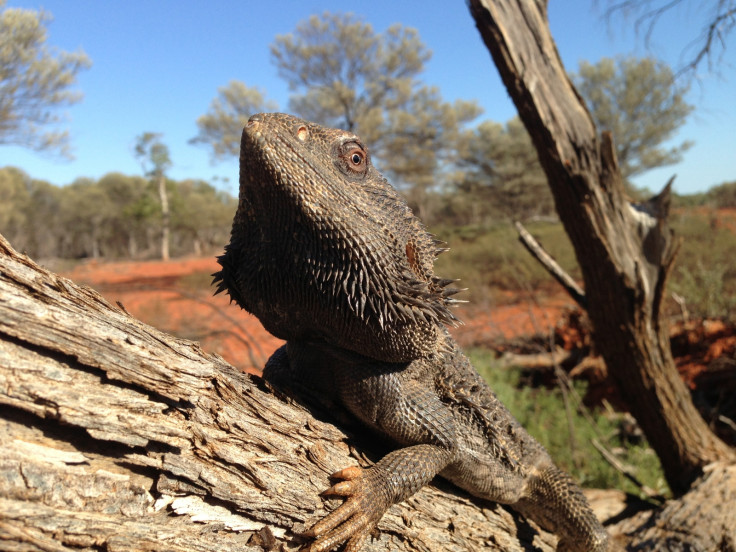Lizard sex change: Bearded dragons susceptible to climate-induced sex reversal

Wild Australian bearded dragons are susceptible to climate-induced sex change when in the egg, a study has found.
Domesticated lizards have been proven to be prone to climate-induced sex reversal before but the report, published in Nature, documents the swap happening in the wild for the first time, which is concerning due to the average worldwide rising temperature.
Clare Holleley, from the University of Canberra, and colleagues gathered data from 131 adult Australian Central Bearded Dragons. Analysis showed that 11 who lived in warmer areas had male chromosomes but were actually female. This proves that while in the egg, if it was hot enough during incubation, the Australian native lizard swapped gender.
It means the bearded dragons have the ability to swap from a genetically controlled system to a temperature controlled one.
Furthermore, when the females with male chromosomes were mated with normal males, the offspring did not have chromosomes that determined gender, meaning their sex was wholly controlled by egg incubation temperature.
Additionally, the sex-reversed lizards laid twice as many eggs in a year as the regular female bearded dragons.
The report highlights climate change as a major concern. It reads: "Controlled mating of normal males to sex-reversed females produces viable and fertile offspring whose phenotypic sex is determined solely by temperature. The W sex chromosome is eliminated from this lineage in the first generation.
"The instantaneous creation of a lineage of ZZ temperature-sensitive animals reveals a novel, climate-induced pathway for the rapid transition between genetic and temperature-dependent sex determination, and adds to concern about adaptation to rapid global climate change."
© Copyright IBTimes 2025. All rights reserved.






















